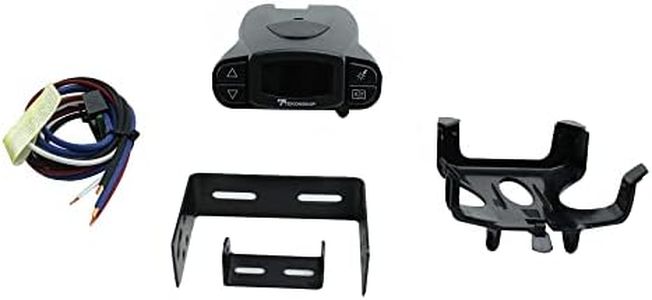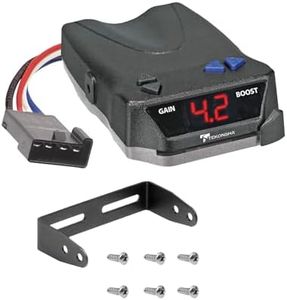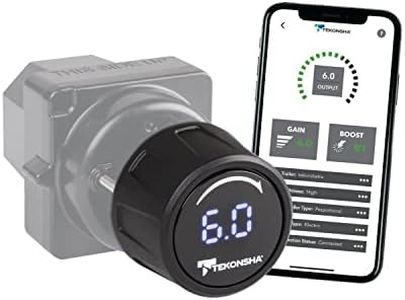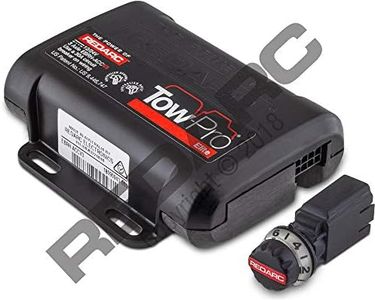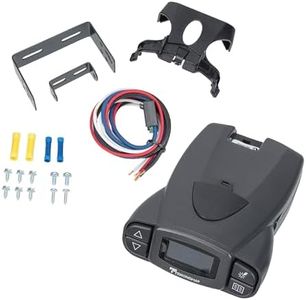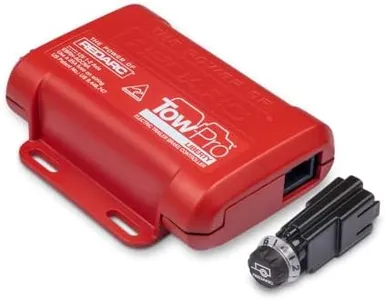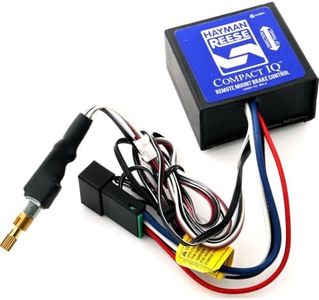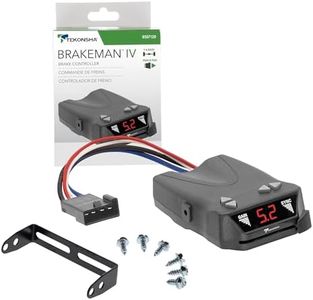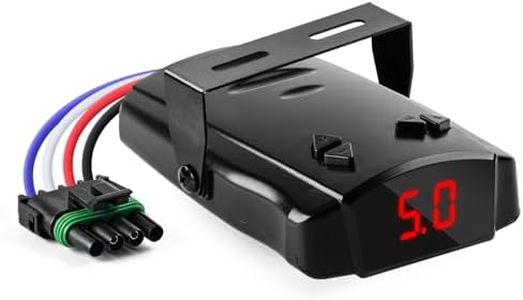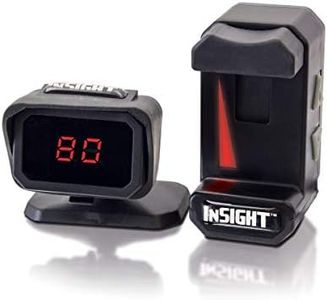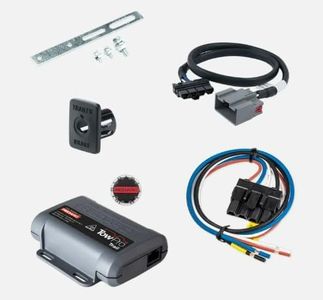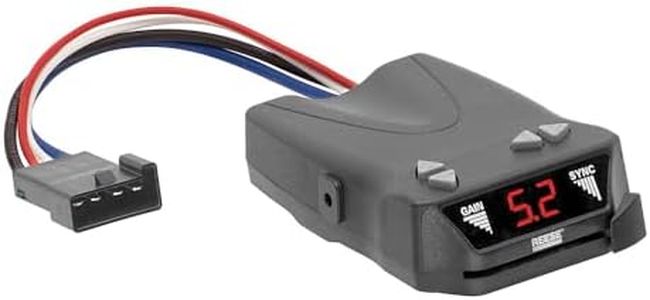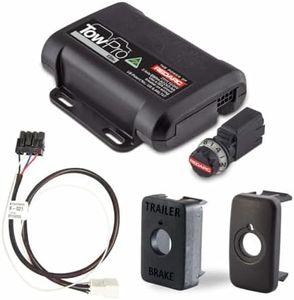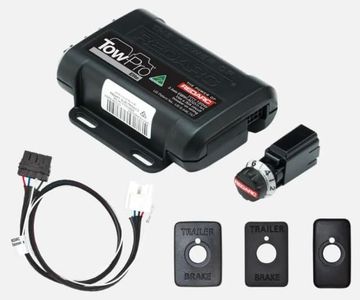We Use CookiesWe use cookies to enhance the security, performance,
functionality and for analytical and promotional activities. By continuing to browse this site you
are agreeing to our privacy policy
10 Best Brake Controllers
From leading brands and best sellers available on the web.By clicking on a link to a third party's website, log data is shared with that third party.
Buying Guide for the Best Brake Controllers
Choosing the right brake controller is important for anyone towing a trailer, camper, or caravan. A good brake controller ensures that when you press your tow vehicle’s brakes, the trailer’s brakes also engage smoothly, making towing safer and more comfortable. The key to picking the best brake controller is to focus on how you want it to perform, how much control you need, and how easy it should be to operate. Considering your towing habits, the size of your trailer, and how often you tow will help guide your decisions.Type of Brake ControllerThere are two main types: time-delayed and proportional. Time-delayed controllers send a fixed amount of braking power to the trailer after a set delay, regardless of how hard you brake, making them simple and often more affordable. Proportional controllers measure how hard you are braking your tow vehicle and send a similar amount of power to the trailer’s brakes, giving smoother and more predictable stops. Consider your needs: if you occasionally tow light loads, a time-delayed model might suffice, but if you regularly haul heavier trailers, a proportional system is usually a better and safer fit.
Mounting and InstallationBrake controllers can be mounted either on the dashboard (fixed) or designed as portable/removable units that plug into the vehicle when needed. Some are hardwired, which may require professional installation and offer a seamless look, while others are plug-and-play for easier DIY setup. If you tow frequently, a hardwired fixed unit is most reliable. For infrequent towing or use in multiple vehicles, a removable or plug-in design can be much more convenient.
Adjustability and ControlsBrake controllers vary in how much you can adjust their settings. Basic models may allow you to set only the overall braking strength, while more advanced ones let you fine-tune response times, sensitivity, and braking force. For casual or occasional use, simple controls might be all you need. If you often tow different trailer sizes or drive in various conditions (like mountains or heavy traffic), more advanced adjustability helps you customize braking for safety and comfort.
Display and AlertsSome controllers offer basic indicator lights, while others have digital displays showing braking force, connection status, and error codes. Audible alerts for issues like disconnects or faults are also common. A clear display helps new users feel confident, and audible alerts are useful if you want to be immediately informed of any trailer brake issues.
Number of Axles SupportedBrake controllers are rated by the number of trailer axles they can control, usually ranging from one to four. This matters because a controller must match or exceed the number of braking axles on your trailer to work safely. If you always tow the same trailer, match the controller to its axles; if you switch between trailers, pick a controller that covers your maximum expected need.
Compatibility and IntegrationModern vehicles may have special wiring, towing packages, or integrated features, so some brake controllers are designed to communicate with vehicle systems. Check for compatibility with your tow vehicle; some controllers plug directly into the factory harness, making installation much easier, while others may require adapters or extra wiring. If you want a hassle-free install or plan to upgrade your tow vehicle, pick a controller known for broad compatibility.
